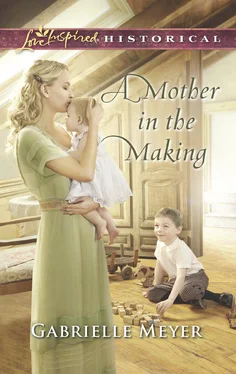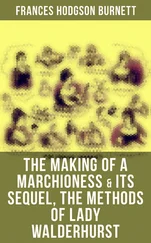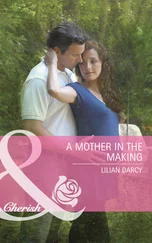This lady would not do—would not do, at all.
“You must be Charles.” Miss Maren dropped John’s hand and turned to the ten-year-old boy. “My, but you look like your mother.”
“You knew my mama?” Charlie asked.
Miss Maren offered a kind smile, and dimples graced her cheeks. “Your grandmother showed me her picture.”
“You know my grandmother?” Charlie looked even more impressed with Miss Maren.
“I know your grandmother and your uncle Paul. They are my neighbors in Chicago.” Miss Maren removed the long hat pin from her hair, and slipped off her hat. Her curls looked like golden silk and for a fleeting second, John wondered how they could look so disheveled yet perfectly arranged. “Were my neighbors,” the young lady amended. “I don’t expect to return to Chicago—I’m going to California to become a film actress.”
“You’re going to be in the movies?” Charlie’s face filled with awe.
It was time for John to take control. He rounded the desk, finally finding his voice. “Miss Maren, I think there’s been a mistake.”
She turned her gaze on John, and he was startled again by her pretty face. If she wanted to be an actress, she would be a charming one—but what reasonable woman wanted to be an actress?
“A mistake?”
“I expected—” How could he tell her he had expected an older woman, who wasn’t quite so...fetching?
“You expected what?”
When she looked at him with those big green eyes, he couldn’t recall what it was he had expected—but certainly not her.
“Your room is connected to the night nursery, on the second floor, with Lilly and the baby,” Charlie said. “Petey and I sleep on the third floor, next to the day nursery.” He picked up Miss Maren’s bag. “You can follow me.”
“Charlie, would you please leave for a moment so I can speak with Miss Maren alone?” John usually appreciated his son’s hospitality—but at the moment he needed Charlie to put down the bag until he knew what he would do with the young woman.
Charlie was a perceptive boy and he studied John’s face now. His grip tightened around the handle of Miss Maren’s bag. “I’ll just bring this up to the day nursery.”
Miss Maren ran her hand over her blond curls and smiled at the boy. “Thank you, Charles.”
The boy’s cheeks filled with color and he dipped his head. “You can call me Charlie.”
John lifted his eyebrows. The boy rarely gave people permission to use his pet name—and never so soon.
Charlie left the room—with the bag in hand—and Miss Maren turned her charming smile on John. “He’s a lovely boy.”
“Would you please have a seat?”
She lowered herself into the leather chair facing John’s desk. Though she had just spent a few days on a train, she looked as fresh as a bed of flowers after a summer rainstorm. “I’m eager to meet the other children,” she said. “Your mother and brother spoke of them so often, I feel as if I already know each one. How old is Laura now? Six months old?”
“Yes—six months.” He dropped to his chair and tried to pull himself together. He was a physician and he prided himself on staying calm in every situation. Surely he could manage something like this. He would have to be direct and honest—two attributes he appreciated in business dealings. “Miss Maren, do you have any experience with children?”
She tucked a curl into her bun with a great deal of nonchalance. “I’m afraid not—but your mother said the children are so well behaved I won’t have any troubles.”
“My children are well behaved, but they are still children—and my mother is a bit biased.”
Miss Maren laughed.
If he had been in a different frame of mind, he would have enjoyed the sound. It had been absent from his home for far too long. Instead, he cleared his throat. “I had expected someone with experience—and maturity.”
She shrugged. “How do you gain experience if you aren’t given your first job?”
That was fair enough. “What types of skills do you have?”
She waved the question away with her hand. “Oh, this and that... Who has been caring for the children since your wife’s passing?”
“My wife’s mother and sister.”
“Do they live close?”
“Too close...” He paused, embarrassed at the hasty words. “They live across the street.”
Miss Maren frowned. “Why do you need a governess if you have their help?”
“I...” He paused again. He was the one interviewing her, wasn’t he? “What led you here to be our governess?”
She blinked several times. “Didn’t your mother tell you?”
“Tell me what?”
“This is a stopping point for me on my way to California. I need the money, and you need a governess, so your mother thought it the perfect solution.”
John steepled his hands on his desk. What had his mother been thinking? Normally she used better judgment, and he had no reason to question her advice—but now he could see he should have asked her more questions. Had she sent Miss Maren in the hopes of matchmaking? If she had, Mother would be sorely disappointed. “I’m afraid I’m in need of someone with experience raising children. My work is very demanding and I must have complete confidence in—”
“You can be completely confident in me.” Miss Maren’s face and voice became very serious.
She would make a convincing actress. He almost believed her.
“I have some questions for you, too,” she said.
He leaned back in his chair. “Oh?”
“How long will you need my services? I won’t be able to stay permanently—but I don’t want to leave until the job is done.”
He wasn’t sure he would need her past this conversation. “I had intended to employ a governess until—” He hated to admit his plans, but what did it matter what this young woman thought of him? “Until I find a wife.”
She leaned forward, her voice lowered as if she didn’t want anyone else to hear. “You’d marry again so soon?”
Irritation flashed warm under his collar. Who was she to question his decision to remarry? It had been a month since Anna died. Not nearly enough time to think of a second marriage in the traditional sense—but more than enough time to realize his children needed a mother. “My concern is for my children.”
“But surely it will take some time for you to grieve—and then fall in love again.”
He stood abruptly. Fall in love again? He could never love another woman the way he had loved Anna. “I would never dishonor my wife’s memory by marrying for love. This is purely a practical decision on my part.”
She rose, as well. “Practical?” Her voice was filled with passion. “Marriage should be everything but practical! It would be dreadful to be married for practicality’s sake.”
Her response was unnerving. He leaned forward, his hands on his desk, and couldn’t help asking, “What is marriage, if it isn’t practical?”
She put her hand over her heart. “It should be whimsical and utterly romantic. It should be entered into for love, and no other reason.”
“You are young and naive, so I will forgive you.”
“Forgive me?” Ire rose in her countenance for the first time since entering the room, and he had a glimpse of the spark beneath all the fluff. “I know something about practicality, and it is overrated.” She put her hands on her hips and stared at him—and he suddenly felt like a schoolboy being reprimanded. “You need a bit of whimsy in your life. I could tell the moment I entered this room that you’re much too serious for your own good.”
He crossed his arms and offered her the stern look he gave the children when they were being impertinent. “You may have time for whimsy, Miss Maren, but I do not.” He was a widower, as well as a doctor with a pandemic on his hands. He had no time for anything resembling whimsy—and Miss Maren was at the top of his list.
Читать дальше












